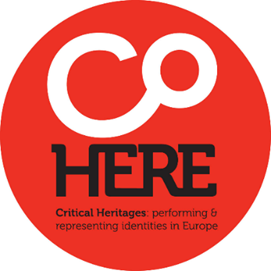Announcements / Events


COHERE Home Page: http://research.ncl.ac.uk/cohere/
Horizon 2020 Cultural Heritage Project (CoHERE)
Researchers explore what makes us feel ‘European’
The things that make us feel European will come under the spotlight in new research led by Newcastle University. Istanbul Bilgi University’s European Institute also joins the consortium. Istanbul Bilgi University’s European Institute also joins the consortium.
Investigators will be looking at how heritage brings people from countries across the continent together as ‘European’ – and how it can drive them apart.
The €2.5 million Critical Heritages (CoHERE) project is the largest and most comprehensive study to date to explore the differences in how people, groups and institutions across Europe use the past to create a sense of belonging or non-belonging.
Museums: The three-year study will cover a broad range of topics including how museums present the past and how ‘non-official’ portrayals of the past such as historical re-enactments contribute to our cultural identity.
Music, Dance, Languages and Tourism: It will also look at music and dance as well as language and tourism. Researchers will also investigate how the past and particular identities are used by politicians and the media, and how these influence attitudes to Islam and to minority groups across Europe.
Food Heritage: Another part of the project will explore food as heritage. From traditional specialities that have protected designation of origin status such as Feta cheese or Melton Mowbray pork pies to differences in eating or cooking practices, the study will investigate how different cuisines shape perceptions of the past and identity throughout Europe.
European Institute: Funded by the European Union, the cross-cutting study involves 12 partners across nine European countries, including the European Institute of Istanbul Bilgi University. The research team will look at heritage and identity across diverse European territories to see how different aspects of cultural heritage influences contemporary identities across Europe and if a coherent European identity really exists.
The School of Arts and Cultures, Newcastle University: Project leader, Professor Christopher Whitehead, from the School of Arts and Cultures, Newcastle University, said: “Our cultural heritage can give us both a distinct identity and common ground in terms of shared values with other people.
“But in the current climate of anti-austerity protests, increased religious tensions and the growth of far right across Europe and EU exit politics, it’s also something that can be used in a reactionary, negative way, so it is especially timely for this research project to take place.
“At a time of apparent crisis, the question we are essentially asking is whether and how diverse cultural heritages can help to create a more coherent Europe.”
The CoHERE project will uncover how different perspectives on heritage and cultural politics across Europe relate to each other. From this, the research team will develop a series of policy recommendations for ways in which these various perspectives may be used to promote greater cohesion.
Participants
|
Participant No |
Participant organisation name |
Country |
|
1 |
Newcastle University (coordinator) |
UK |
|
2 |
Aarhus University |
Denmark |
|
3 |
University of Amsterdam |
Netherlands |
|
4 |
National and Kapodistrian University of Athens |
Greece |
|
5 |
Istanbul Bilgi University, European Institute |
Turkey |
|
6 |
University of Bologna |
Italy |
|
7 |
Copenhagen Institute of Interaction Design |
Denmark |
|
8 |
Heriot-Watt University |
UK |
|
9 |
Latvian Academy of Culture |
Latvia |
|
10 |
European Network of Cultural Centres |
Belgium |
|
11 |
POLIN Museum of the History of Polish Jews |
Poland |
|
12 |
Tropenmuseum |
Netherlands |
This project has received funding from the European Union’s Horizon 2020 research and innovation programme under grant agreement No 693289.

